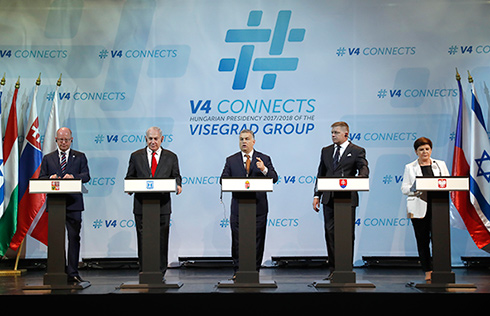US immigration bill boosted by border deal
WASHINGTON - Far-reaching immigration legislation offering the prize of US citizenship to millions is swiftly gaining ground in the Senate following agreement between Republicans and Democrats on dramatic steps aimed at securing the border with Mexico.
The deal to double Border Patrol agents and fencing along the border won support Thursday from four undecided Republican senators for the immigration bill that's a top priority for President Barack Obama. More appeared likely to join them, putting the legislation within reach of securing the strong bipartisan vote that its authors say is needed to ensure serious consideration by the Republican-controlled House of Representatives.
Immigration is the rare issue these days to attract support from both major political parties. Opposition Republicans swung to the issue after Latinos voted overwhelmingly for Obama in last year's election - a warning to the largely white, conservative party that the country's demographics are changing.
Senate Majority Leader Harry Reid said the amendment was nearly ready and the Senate could move forward with it Friday.
"It is safe to say that this agreement has the power to change minds in the Senate," said Sen. Chuck Schumer, a lead author of the bill. "With this agreement, we have now answered every criticism that has come forward about the immigration bill."
Sen. John McCain said the deal should satisfy fellow Republicans concerned that the border security provisions in the bill were too weak.
The deal prevents the estimated 11 million immigrants now here illegally from attaining permanent resident status until a series of steps have been taken to secure the border.
These include doubling the Border Patrol with 20,000 new agents, 18 new unmanned surveillance drones, 350 miles (563 kilometers) of new fencing to add to the 350 miles already built, and an array of fixed and mobile devices to maintain vigilance, including high-tech tools such as infrared ground sensors and airborne radar.
The new provisions would be put in place over a decade, in line with the 10-year path to a permanent resident green card that the bill sets out for immigrants here illegally. During that time, the immigrants could live and work legally in a provisional status.
Before the deal was reached, American Civil Liberties Union called the proposal a "massive deployment of force" that would be "simply devastating for border communities".
Apart from the border security measures, the legislation as drafted already included implementation of a biometric system to track the comings and goings of foreigners at air and sea ports as well as land crossings, and a requirement for businesses to verify the legal status of job seekers.
The legislation also would increase the number of visas going to high-skilled workers whose labor is sought by US technology firms, create a new program for lower-skilled immigrants and allow farm laborers to come to the country temporarily to perform seasonal jobs.
Separately, younger immigrants who came to the United States illegally as children would be eligible for legal status more quickly than others.
For foreigners looking to move to the United States legally, a decades-old system that emphasizes family ties would be replaced by one that gives more weight to education, work skills, English proficiency and relative youth.



















